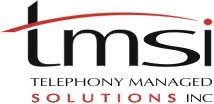During catastrophic events like earthquakes or tsunamis, telecommunications service often fails as a result of overwhelming demand, infrastructure collapse or power failures. But ImpreMedia, the nation's leading Hispanic media company, did not lose connectivity during a recent earthquake near its Los Angeles office.
Bob Mason, CTO, attributes ImpreMedia's ability to emerge from the earthquake scratch-free, technologically speaking, to the company's implementation of Avaya's IP Office solution. The hybrid system, Mason says, gives ImpreMedia the "best of both worlds" solution it needs -- the benefits of IP telephony and unified communications with the redundancy to keep the entire network afloat in the event of a natural disaster.
ImpreMedia evaluated many vendor solutions, from traditional phone systems to 100% VoIP implementations, and found that IP Office provided the unique hybrid system that served its needs perfectly. "If the wide area network were to fail between locales, the system would continue to operate," Mason said. "It provides survivability within a multi-site organization."
ImpreMedia is indeed geographically dispersed, with offices not only in Los Angeles but in Chicago and New York City, a setup that added to the necessity of employing a communications solution with call center capability that was cost-effective yet easy to monitor and manage. With Avaya's IP Office solution configured by Converged Communication Systems, ImpreMedia is able to centrally host all of its unified communications technologies from the corporate office. Having a centrally located solution allows implementation of corporate standards that drive costs down and provide ease of use for employees.
"We also needed to find a system that fit our market scale," Mason said. "We struggled to find a system with enterprise services for SMBs that also had an attractive price point and true unified communications capabilities."
The company was not just looking inward to alleviate communications problems; it wanted to find a way to improve customer service and interactions across the board. The call center capabilities of the IP Office solution provided just that -- ease of use for call center employees and better customer service capabilities. ImpreMedia's call center now has greater visibility, and managers can analyze performance data in real time, providing immediate solutions should any problems arise. In monitoring the number of dead and lost calls in the call center, Mason noted that the number of such calls has decreased to almost zero.
ImpreMedia also wanted key employees to be productive while mobile or remote. Now, employees with Avaya IP phones can have their incoming calls routed directly to their mobile devices if they choose, and they can transfer calls back to their desk phones when they return to the office. These capabilities have ensured that customer service standards do not suffer just because an employee is away from his desk.
In simplifying its communications, ImpreMedia has received tremendously positive feedback from employees, who laud the system's ease of use. Managers can also remotely monitor call traffic and appropriately allocate work to employees.
"We are now able to make more intelligent decisions regarding how many agents should be involved on inbound and outbound calls," Mason said. "Our managers now have access to accurate intelligence data in real time, allowing us to more efficiently allocate our resources."
For ImpreMedia, implementing Avaya's IP Office provided a solution that is not only safe but reliable. The company enjoys all the benefits of IP telephony -- such as four-digit calling, call transfer and SIP trunking -- but with the added stability of a hybrid system. Since implementing the solution, ImpreMedia has improved its customer service capabilities and increased employee productivity across the board. The company has also managed to reap a multitude of benefits while adhering to its budget.
Mason concluded: "If you find a solution that is reasonably priced and improves your customer service capabilities -- well, that just says it all."
Hybrid IP telephony solution essential to network disaster recovery
SearchUnifiedCommunications.comFORWARD BY TOM MACDONALD, TMSI VANCOUVER BC
I would also add that ACTIVE disaster recovery is what we can do very well indeed. We set up our clients in such a way that should the "last mile" of the client's connection fail for any reason, our NOC detects the failure point and activates an automatic re-routing of all inbound calls to a client designation point. It could be a voicemail box, or another branch office. It could be our own answering services or a users mobile phone.
